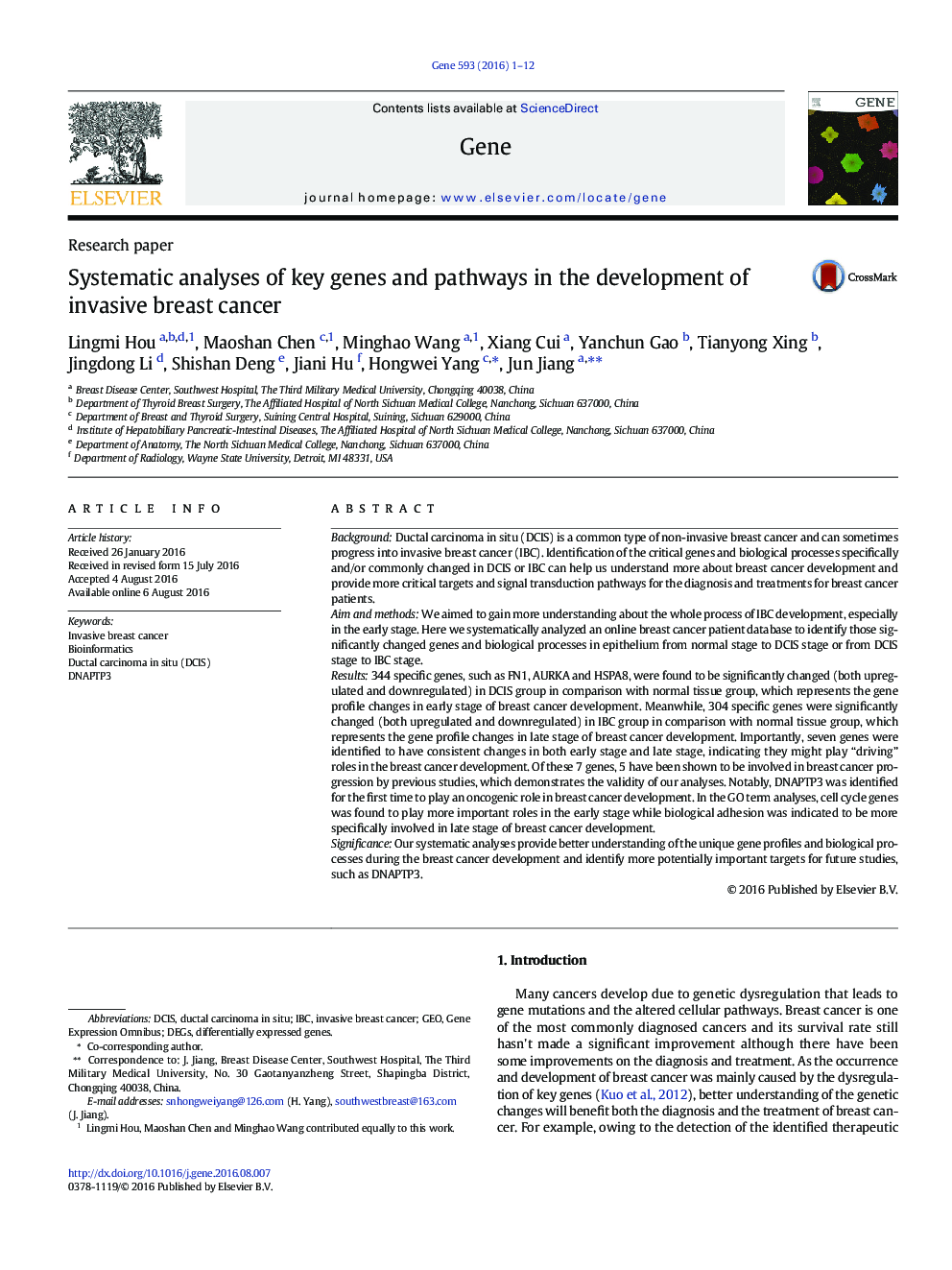| کد مقاله | کد نشریه | سال انتشار | مقاله انگلیسی | نسخه تمام متن |
|---|---|---|---|---|
| 2814728 | 1159827 | 2016 | 12 صفحه PDF | دانلود رایگان |
• Understand more about the unique gene profiles and biological processes during the breast cancer development;
• Identify more potentially important targets for future studies, such as DNAPTP3.
BackgroundDuctal carcinoma in situ (DCIS) is a common type of non-invasive breast cancer and can sometimes progress into invasive breast cancer (IBC). Identification of the critical genes and biological processes specifically and/or commonly changed in DCIS or IBC can help us understand more about breast cancer development and provide more critical targets and signal transduction pathways for the diagnosis and treatments for breast cancer patients.Aim and methodsWe aimed to gain more understanding about the whole process of IBC development, especially in the early stage. Here we systematically analyzed an online breast cancer patient database to identify those significantly changed genes and biological processes in epithelium from normal stage to DCIS stage or from DCIS stage to IBC stage.Results344 specific genes, such as FN1, AURKA and HSPA8, were found to be significantly changed (both upregulated and downregulated) in DCIS group in comparison with normal tissue group, which represents the gene profile changes in early stage of breast cancer development. Meanwhile, 304 specific genes were significantly changed (both upregulated and downregulated) in IBC group in comparison with normal tissue group, which represents the gene profile changes in late stage of breast cancer development. Importantly, seven genes were identified to have consistent changes in both early stage and late stage, indicating they might play “driving” roles in the breast cancer development. Of these 7 genes, 5 have been shown to be involved in breast cancer progression by previous studies, which demonstrates the validity of our analyses. Notably, DNAPTP3 was identified for the first time to play an oncogenic role in breast cancer development. In the GO term analyses, cell cycle genes was found to play more important roles in the early stage while biological adhesion was indicated to be more specifically involved in late stage of breast cancer development.SignificanceOur systematic analyses provide better understanding of the unique gene profiles and biological processes during the breast cancer development and identify more potentially important targets for future studies, such as DNAPTP3.
Journal: Gene - Volume 593, Issue 1, 15 November 2016, Pages 1–12
